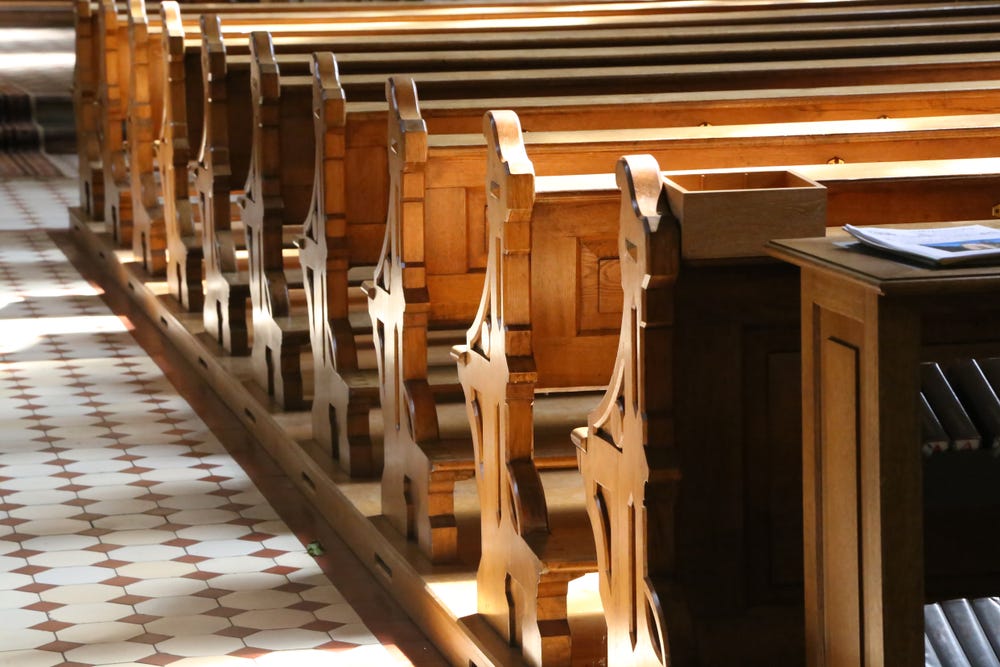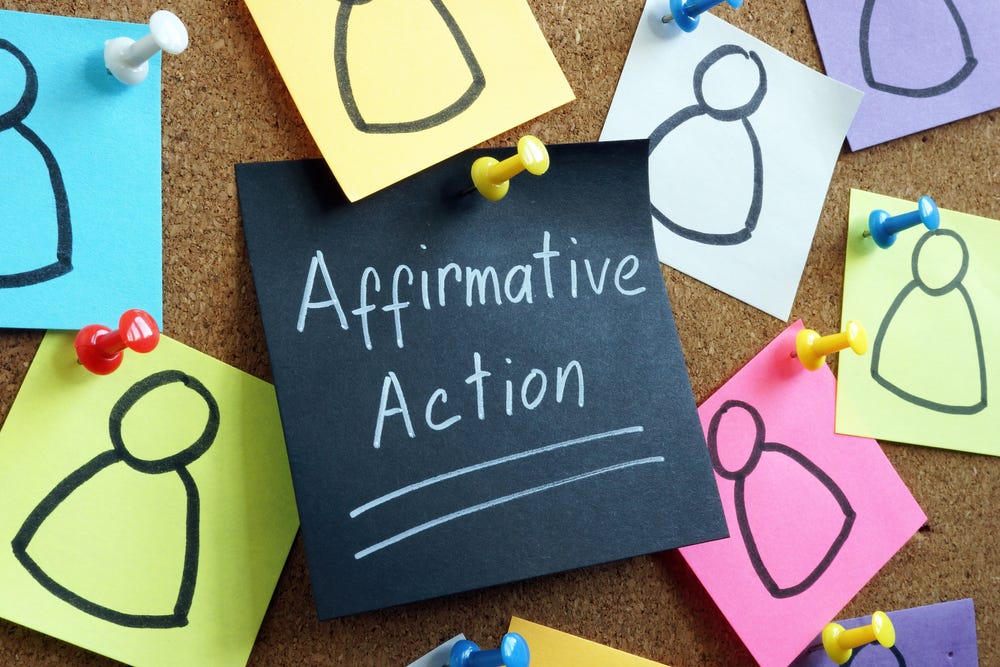E-Pluribus | March 9, 2023
Fixing Florida's free speech fixes; while imitation can be flattery, the 'religion' of wokeness is insulting; and affirmative action was never a healthy idea.
A round-up of the latest and best writing and musings on the rise of illiberalism in the public discourse:
Yascha Mounk: How to Save Academic Freedom From Ron DeSantis
Gov. Ron DeSantis’s tactics regarding free expression and pushing back on the leftward tilt of Florida’s educational institutions continue to get mixed reviews. At The Atlantic, Yascha Mounk writes of how DeSantis’s proposals and actions are in some cases too similar to those DeSantis is ostensibly opposing and provides some better ways to go about it.
[Florida governor Ron] DeSantis’s. . . promise to fight wokeness is a big reason for his rapid rise on the right, making him Trump’s leading competitor for the Republican presidential nomination. And because many Americans, of all ethnic origins and ideological stripes, feel alienated by the recent transformation of mainstream institutions, his campaign may even have helped DeSantis win voters outside his party’s base.
Still, a closer look at the changes DeSantis is implementing in Florida reveals that—contrary to the promise encapsulated in the title of his new book—they will make Americans less, rather than more, free. . .
[ . . . ]
[Florida House Bill H.B. 999’] most blatant restriction of academic freedom concerns the content of courses taught at public universities in Florida. Although it is appropriate for a legislature to set broad expectations for what the institutions it funds will teach—for example, by directing them to prepare students for the needs of the state’s economy—academic freedom is severely undermined when faculty members are prohibited from teaching particular topics or expressing certain points of view.
[ . . . ]
(Reading the legislation, I realized that many of the classes I teach would likely fall into the interdicted category. Although I am critical of most forms of identity politics, I believe that my task in the classroom is to facilitate debate, not to evangelize my views. When I teach students about so-called cultural appropriation, for example, I freely express my conviction that we have gone too far in putting healthy forms of mutual cultural influence under a pall of general suspicion. But to facilitate a meaningful debate, I also assign philosophical articles justifying expansive prohibitions on cultural appropriation that a well-informed judge would reasonably interpret as standing in the tradition of identity politics.)
Read it all.
Matthew Rowley: Comparing Wokeness to Christianity Is an Insult to the Church
There is broad consensus among the opponents of woke ideologies that wokeness constitutes a de facto religion for its adherents. At Quillette, however, Matthew Rowley argues that it’s wrong to take the comparison, particularly one to Christianity, too far.
[A] closer inspection of the superficial similarities between Christianity and Wokeness shows the falsehood of the analogy: The message of original sin is not one of a permanent and hopeless state, but the start of the story of grace and redemption, as Jesus Christ repairs the brokenness of the human soul once and for all. The need for confession and penance is not for the purposes of regaining a lost salvation status, but rather the maintenance of a close and healthy walk with God. The expiatory sacrifice is not one that can be made by a human through great effort, but one that was completed once and for all by the one and only priest a Christian needs: Jesus Christ. The lifelong struggle for purity and righteousness is not one that can be fought by a person for themselves, but one that God in the Holy Spirit fights for the person, providing victory and hope, rather than eternal anxiety and fear. All in all, it’s a vastly different message than that presented by the armies of the Woke god as they glue their hands to paintings, flagellate politicians, execrate their communities, and cry out against every real and imagined heresy.
[ . . . ]
There is a fundamental need in all humanity to go beyond the merely earthly and touch the transcendent. As Kay describes it, there is a religion-shaped hole in every person. In modern days, we have found an answer to this, turning not merely to one new god, but a whole pantheon. For those who value nature, we provide the climate god, who will demand endlessly costly sacrifices and condemn all climate-change deniers to a painful demise. For those looking for a bit of fun, we have the pleasure gods, encouraging a continuous pursuit of self under the cover of “you deserve it” (or, in its more understated and medicalized variant, “self-care”). Standing above all the others, the Zeus of this pantheon, is the god of Woke. This great deity is unknowable and undefinable, continually changing (or even reversing) its form, expecting of its acolytes not merely slavish devotion but also acts of great mental and doctrinal contortion. The faithful must tear down their traditions, social networks, citizenship, ancestry, and then, having thrown all else upon the fire, calmly stride into the sacrificial flame, proclaiming their eternal unworthiness.
Read it all here.
Jason L. Riley: Unpopular, Polarizing, and Ineffective
The Wall Street Journal’s Jason Riley has more than once found fault with affirmative action in his column at the Journal. As the Supreme Court once again takes up the issue, Riley makes the case at City Journal that the time has come, and indeed is long since past, for the discriminatory, if well-intentioned, practice to end.
When it comes to skepticism of affirmative-action policies, the issue isn’t whether today’s college students are “left-wing activists who aren’t in touch with the real world” but rather whether that description better applies to New York Times journalists and other liberal elites. If, as many who follow this issue expect, the Supreme Court sides with the plaintiffs in Students for Fair Admissions (SFFA) v. Harvard and the companion case, SFFA v. University of North Carolina, it will not only strike a blow for constitutional color blindness but also align with public opinion as expressed in polling and at the ballot box. As important, the High Court has an opportunity to correct judicial and administrative-state distortions of antidiscrimination law that date back more than a half-century and do much to fuel racial division.
[ . . . ]
The principle of constitutional color blindness has governed much of the Supreme Court’s decision-making since the 1954 Brown v. Board of Education ruling, which outlawed segregation. As the legal scholars John Yoo and Wen Fa noted in a recent essay for The New Criterion, since Brown, the Court has banned consideration of race in everything from child custody to government hiring to federal contracting. In 2007, the justices ruled in Parents Involved in Community Schools v. Seattle School District No. 1 that the use of racial classifications by school officials in the K–12 admissions process was prohibited. “The campaign against racial discrimination began with schools in Brown and has now come full circle,” observe Yoo and Fa. “But a single exception to the Constitution’s colorblindness principle remains.”
[ . . . ]
Some five decades into this affirmative-action experiment, it’s clear that schools are violating the plain language of both the Constitution and federal civil rights statutes. It’s clear that they are abusing the narrow window, first cracked open to them in Bakke, to use race as a small and nondeterminative factor in admissions. And it’s clear that group preferences cannot be reconciled with the imperative to treat all individuals equally. What’s also clear is that racial preferences are not helping the intended beneficiaries.
Read the whole thing.
Around Twitter
Author, journalist, and screenwriter Matt Bai on why illiberalism is a problem all along the political spectrum:
And finally, imagine, wearing Handmaid's Tale outfits to protest a regime that actually oppresses women…








